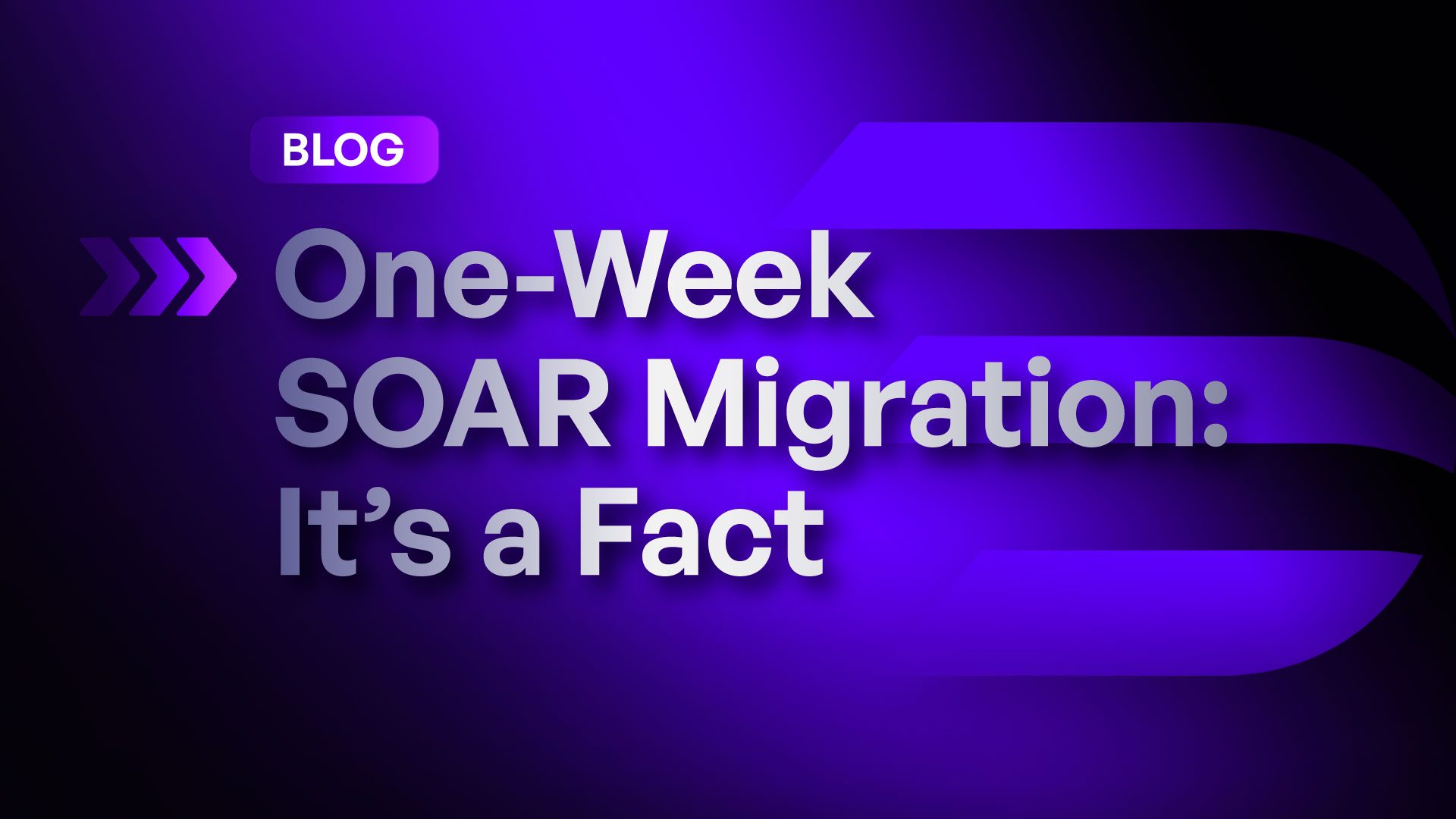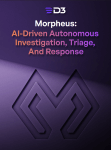I was recently listening to a podcast about SIEM migrations, and it got me thinking about all the similarities to SOAR migrations. The podcast episode featured Google’s Anton Chuvakin interviewing Manan Doshi, a senior security engineer at Etsy, who shared his experience of migrating their SIEM three times.
We’ve helped a lot of companies, from bespoke MSSPs to the largest organizations in the world, move from legacy SOARs to D3’s Smart SOAR. Manan’s insights on SIEM migration made me consider how SOAR migration timelines depend on the company. Some transitions take months, especially for larger companies with more complicated setups. But for smaller organizations that are ready to make the change, a one-week SOAR migration is totally possible. I know it’s true because I’ve seen it happen.
I remember one migration in particular. The company was switching from Palo Alto Networks Cortex XSOAR to Smart SOAR. We had a vendor-specific migration plan, and the customer was totally prepared. Their analysts logged out of XSOAR one Monday, and the next Monday, they were logging into Smart SOAR—it was that fast. All their playbooks, automations, reports, and incident forms were moved over to Smart SOAR, so they barely missed a beat.
Keys to a Successful One-Week SOAR Migration
Pulling off a one-week SOAR migration requires careful planning and preparation, with full buy-in from both the vendor and the customer. It also demands complete focus on the customer’s essential needs, to keep the project on track without getting distracted by details. Here’s an overview of the plan we use to achieve SOAR migration in one week:
Before Day 1: Understanding Your Needs
In this phase, which we call our initial assessment phase, we have a series of collaborative sessions with the customer’s team to understand their needs and identify core requirements. We generally focus on:
- Understanding their current workflows and pain points.
- Determining which integrations are critical.
- Assessing the complexity of their playbooks and automation rules.
Days 1-3: Playbook Re-Platforming
Our team builds out the customer’s existing playbooks in D3 Smart SOAR. We also identify gaps and shortcomings that we address through custom utility commands—which we call Hyperactions. These Hyperactions help SOC teams eliminate the cognitive burden of working with Python scripts in legacy SOAR platforms.
Days 3-5: Integrations
Smart SOAR has a library of hundreds of integrations, so connecting the ones the customer needs is almost always a simple process. We maintain these integrations and constantly update them for maximum functionality and reliability. We also provide free, custom integration development if a needed integration is unavailable.
Days 5-7: Rigorous Testing for Dependability
Once our team has created the workflows and integrations, we run massive ingestion jobs to stress-test the system beyond real-world requirements to guarantee reliability and scalability. This phase ensures a smooth transition and minimizes risk of disruptions.
Why a Swift SOAR Migration Matters
A quick SOAR migration limits any potential interruption or disruption to your security operations, unlocks faster time to value, and keeps your team resources focused on their core responsibilities. Which is why we approach it like a Formula One pit stop crew. Our aim is to get your security operations running smoothly with minimal disruption.
What you’ve seen is a high-level outline of our migration process, with a timeline that we have achieved for smaller organizations many times. Of course, not all SOAR migrations are this quick. Larger, more complex environments will naturally take longer, especially when there are many custom scripts and large volumes of historical data. It’s crucial to be realistic about the scope of your migration project and allocate sufficient time and resources for a successful transition.
No matter the scale, the result of a well-planned SOAR migration is always the same: freedom from an underperforming tool and the opportunity to move forward with a future-proof automation solution.
Seamless SOAR Migration Is Within Reach
Migrating to a new SOAR platform in just one week may sound ambitious, but with the right strategy and support, it’s entirely achievable. The key lies in thorough preparation, clear communication, and leveraging a platform and a partner equipped to handle the complexities of migration. With expert guidance, a strong focus on core functionalities, and rigorous testing, your security operations can be up and running on a new SOAR system with minimal disruption. Partner with a vendor who has a proven migration plan and the expertise to guide you through the process. Book a demo with us to learn more about our Legacy SOAR Migration program.




